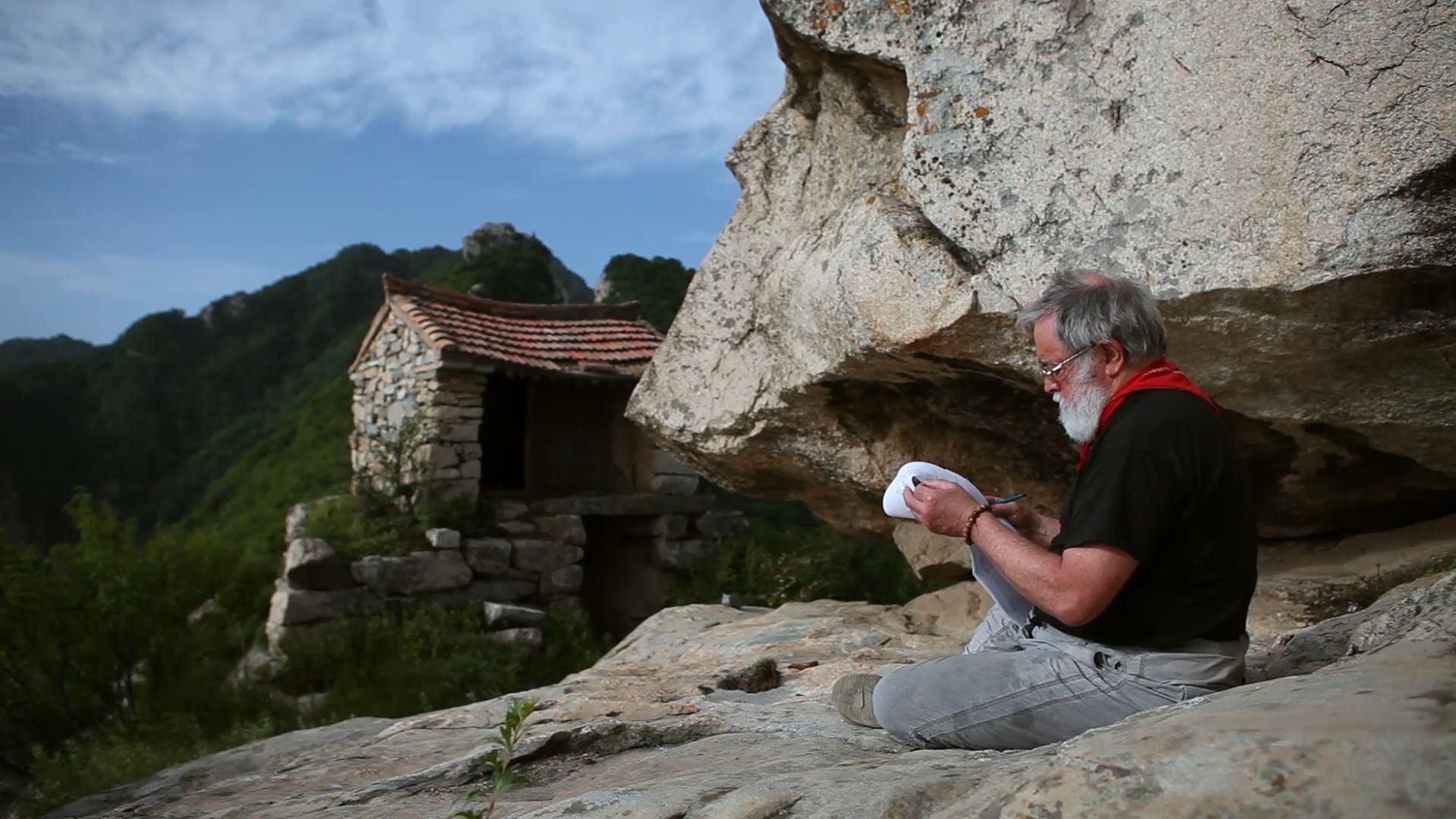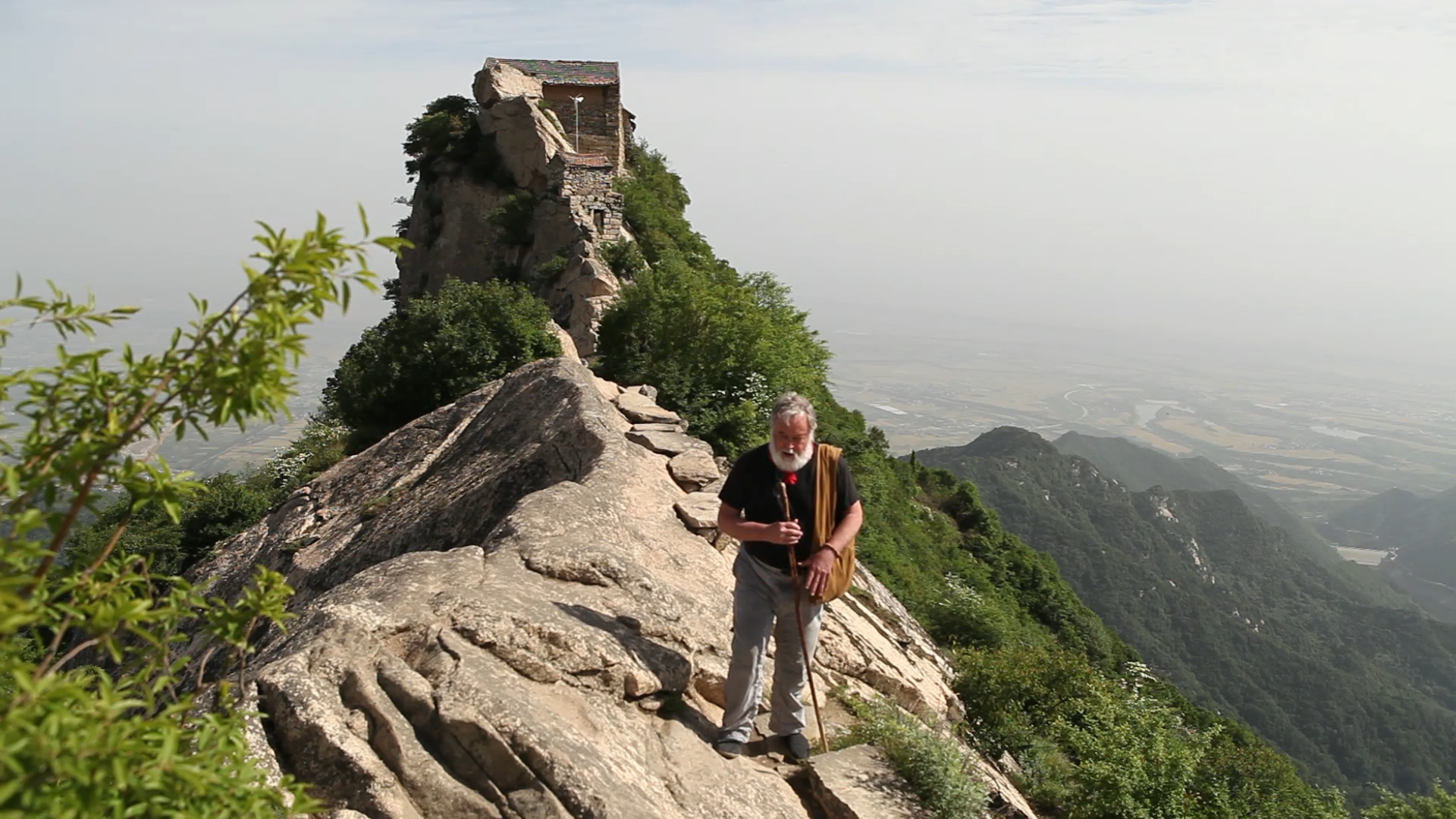Dancing with the Dead: Red Pine and the Art of Translation (Ward Serrill, 2023)

Eliot Weinberger’s seminal study, 19 Ways of Looking at Wang Wei, takes for its subject a single poem and looks at a number (19 plus several more in later editions) of different translations of that poem over the course of the 20th century. The approach allows Weinberger, in only a few pages (the whole book, afterword by Octavio Paz included, comes to less than a hundred pages), to cover a wide variety of problems and nuances in attempts to translate from a language like Chinese, built on entirely different linguistic principles, into an Indo-European language like English (or French, or German, examples of which are also included). Chinese is built out of characters or ideograms, each of which stands for a word (or words) and is one syllable long. The language includes relatively few sounds, which facilitates rhyming and punning, but it is also tonal, which gives poetry, chiefly concerned with the sequence of tones and number of syllables per line, what to our ear is a sing-song quality. All of this is extremely difficult to replicate in English without sounding ridiculous.
Wang Wei lived in the 700s, during the Tang Dynasty. His poem is in a popular style: four lines, five characters/syllables per line. Most translators render the title as “Deer Park” and it’s one of his more famous poems, part of a series he did in conjunction with a long, horizontal landscape scroll depicting the environs of the Wang River. The poem describes a landscape: on a mountain people can’t be seen though there is the sound of voices, sunlight is in the forest and it shines on green moss. No two translators read the poem the same way, differing on everything from the title to whether or not the mountain is a hill to the use of a first person pronoun (absent in the original) to the direction of the sun and where exactly the moss is in the forest. Weinberger includes the attempts of a number of famous sinologists and poets: Witter Bynner, Kenneth Rexroth, Burton Watson, Octavio Paz, François Cheng, Gary Snyder, Vikram Seth, David Hinton, and more. None of them get it exactly right, because they can’t. But they all express something of the poem’s meaning, and more than a little bit about the translator themself. That’s the nature of translation: it can only approach accuracy, never reach it.
The edition I have of Weinberger’s book dates to 2016, and it does not include the translation of “Deer Park” by Bill Porter, who translates under the name Red Pine, probably because it too was published in 2016, as part of his book Finding them Gone. It is a pretty good one though:
Deserted mountain no sign of people
except for the sound of their voices
as the light comes back through the forest
it illuminates the green moss again
Porter chooses “No sign of people” as opposed to “no people to be seen”, an option Weinberger objects to when Sam Hamill went the same way: this isn’t an untouched wilderness, but an enclosed deer park. But I think that’s reading the phrase a little too literally and besides I think it works in feeding into the “except” (rather than “but” or “yet”) of the second line: no sign except sound instead of the people being not-seen and heard. Starting the third line with “as” as opposed to starting a new sentence/couplet there gives the poem more of a feeling of unity, of simultaneity: all of this, the desertion, the sounds, the light, is happening in a continuous flow. Porter’s translation gives a sense of narrative: the mountain is now deserted because the people have left, as they recede into the distance, we can no longer see them, though we can still hear their voices. As they leave, light returns to the forest. The repetition of “come back” and the final “again” make it clear: while the people were there, the sun was gone, now that they’ve left, the green moss can be seen again.

Despite its subtitle, Dancing with the Dead: Red Pine and the Art of Translation isn’t interested in any of that. Instead, the film, directed by Ward Serrill, is more interested in Porter himself and his life story. He tells us of his childhood as the son of a bank robber who, when he got out of jail, became a millionaire hotelier. Porter attended boarding school, dropped out of several colleges, spent some time in the army (avoiding Vietnam by getting himself shipped off to Europe), and eventually found himself studying Chinese at Columbia and spending more and more time being a Buddhist. He moved to Taiwan to be a monk, then lived for some years on a mountain. He got married, had kids, and ended up living in Port Townsend, Washington, which is about 80 miles north-northwest of where I’m writing this in Tacoma, on the opposite end of the Puget Sound.
It’s an interesting story, and Porter is an engaging storyteller. He’s published dozens of books of translations, of poetry as well as Buddhist and Taoist texts, but he’s most famous for a travel book. In 1989, he went through China in search of hermits, recluses following a 3,000 year old tradition of withdrawing from the world to contemplate the nature of things, keep a small farm, and write poetry. They officially shouldn’t have existed anymore, stamped out by the many revolutions of the 20th century, but Porter found them, living as they’ve always lived in the Zhongnan Mountains. His book about his search, Road to Heaven, became a somewhat surprising hit when it was translated into Chinese, and remains a touchstone for Chinese culture even today (Serrill includes a clip from a contemporary Chinese TV show, where one character suggests the book, and Porter’s other writings, to another).
I’ve been reading Finding them Gone, which is another travel book, this time chronicling his attempt to visit the grave sites and homes of a whole bunch of different poets over the course of 30 days. It’s a good read, told with utmost respect for the poets and self-deprecating humor about his attempts to deal with the local traffic and heat, written with short, punchy sentences. In the book Porter explains that he used to do travel pieces for the radio in Hong Kong, and you can see traces of that style in his writing, as much as the pithy practicality of a man who spent years living on a mountain. This comes across as well in Serrill’s film, which isn’t so much concerned with spirituality or mysticism or the romance of the Orient, as in so many narratives of the men and women of Porter’s generation who went East to find answers to the emptiness of post-war, middle class American life. Rather, Porter’s reasons for doing anything seem entirely practical and guided, more than any philosophical yearnings, by a deep and profound, and wholly admirable, stubbornness.
This directness is apparent in his translations. Some writers do their best to liven up “Deer Park”, to make it sound more, well, “poetic”: the light entering the forest gleams or slashes or slants or glitters or reflects or even, god forbid, refracts. Porter, in all the translations I’ve seen from him, goes the opposite direction. The virtues he seemed to find in Zen Buddhism—calm, simplicity, directness—are the ones he finds in the poems as well. When he talks, in the film, about the poems of Cold Mountain or Stonehouse, he doesn’t talk about them as if they were philosophers who had uncovered the secrets of the universe. He talks instead about men and women who dedicated their lives to living in isolation, drinking, and writing. Not necessarily in that order.
What Porter does not do is talk about the art of translation, or what it means to be a middle class white American who immerses oneself in a culture from another nation, halfway around the world. Rather than talk about it, he simply shows us. We see footage of Porter traveling through China, visiting some of the old hermit sites he found 35 years ago, as well as the Taiwanese mountain he used to live on in the 70s and 80s. He’s an old man, politely knocking on doors, calling in Chinese to anyone who might be inside, asking to be let in. Once in a while, he gets to go inside, and he reports back to us, through his books, his translations, and this film, what it is that he finds there.
